 Petzlover
Petzlover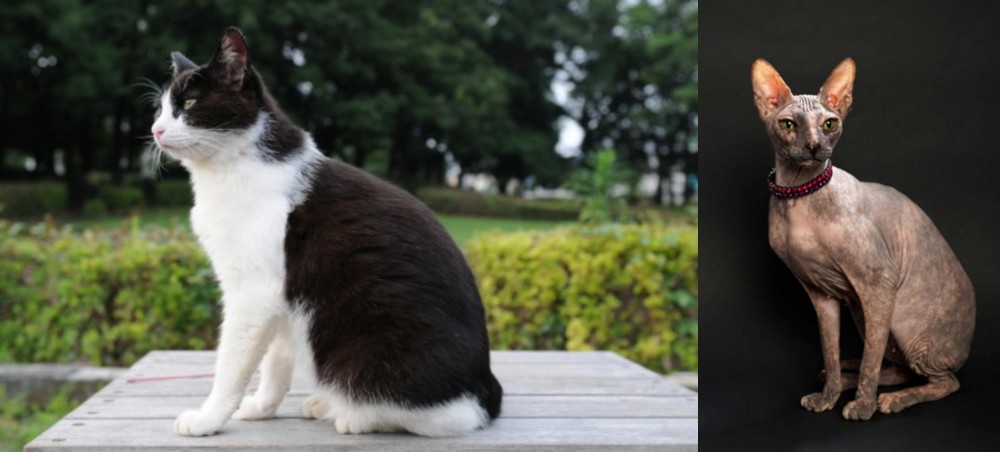 Bicolor is originated from United States but Don Sphynx is originated from Russia. Both Bicolor and Don Sphynx are having almost same weight. Bicolor may live 3 years more than Don Sphynx. Both Bicolor and Don Sphynx has same litter size. Bicolor requires Moderate Maintenance. But Don Sphynx requires Low Maintenance
Bicolor is originated from United States but Don Sphynx is originated from Russia. Both Bicolor and Don Sphynx are having almost same weight. Bicolor may live 3 years more than Don Sphynx. Both Bicolor and Don Sphynx has same litter size. Bicolor requires Moderate Maintenance. But Don Sphynx requires Low Maintenance
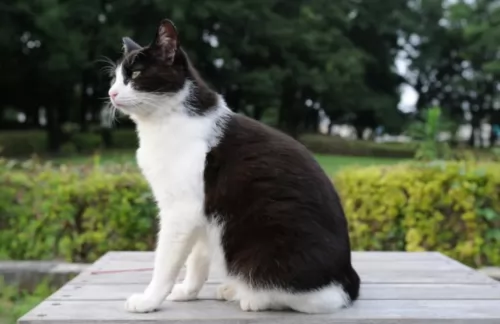 The first thing to know is that a Bicolor cat isn’t in fact a breed. Bicolor is just a term that describes a certain look that a cat has with its coat. It’s a cat with two colors such as red and white or black and white.
The first thing to know is that a Bicolor cat isn’t in fact a breed. Bicolor is just a term that describes a certain look that a cat has with its coat. It’s a cat with two colors such as red and white or black and white.
A popular name for bi-color cats is also Piebald or Tuxedo, and in fact many cat breeds can produce bicolor kittens, or black and white kittens such as Cornish Rex, Maine Coon, Manx, and others.
There are different coat color combinations when it comes to bicolor cats and the black and white markings may be more common but there are other color combinations too such as orange and white.
Nobody seems to know the origins of the Bicolor cats so we are going to assume they come from the USA.
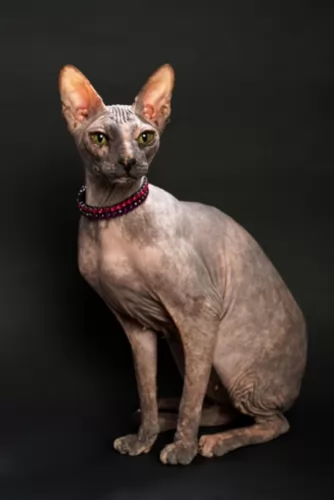 Of Rusian origin, the Don Sphynx is an interesting looking, hairless breed. The cat came about in 1987 when a hairless cat was seen in Rostov-on-Don, a Russian city.
Of Rusian origin, the Don Sphynx is an interesting looking, hairless breed. The cat came about in 1987 when a hairless cat was seen in Rostov-on-Don, a Russian city.
Cat breeder Elena Kovaleva rescued the kitten and it was at about 4 months of age that the kitten began to lose its hair. Later it was mated with a local tomcat and produced kittens which became the founding stock of the Donskoy breed.
The cat breed was recognized by the World Cat Federation in 1997 as well as the International Cat Association later on in 2005.
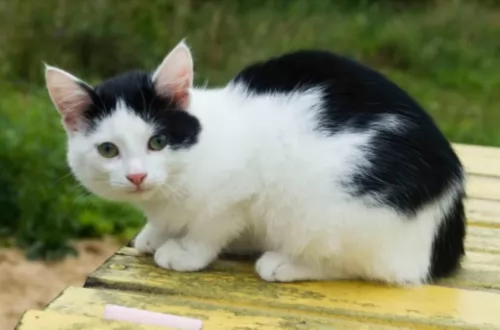 Regardless of the breed they belong to, information on these cats suggests that they can have many different looks. Look at the amazing Turkish Van cat for instance – each of these cats is recognizable for its long, luxurious fur. You’ll find a few touches of color on the cat's ears and tail, making in a Bicolor. They also have an interesting characteristic – being fond of water!
Regardless of the breed they belong to, information on these cats suggests that they can have many different looks. Look at the amazing Turkish Van cat for instance – each of these cats is recognizable for its long, luxurious fur. You’ll find a few touches of color on the cat's ears and tail, making in a Bicolor. They also have an interesting characteristic – being fond of water!
These Bicolor cats weigh in the region of 3 – 7kg, and can tend towards the smaller or larger size. Some of them can have short or long hair, larger or smaller ears and green or yellow eyes.
Coming from different cat breeds, the bicolor cat can have a mix of wonderful characteristics – they can be vocal or quiet or confident or shy.
They’re always wonderful though and can be curious, intelligent, playful, loving and loyal. They make great companions who just love the interaction they have with their human owners.
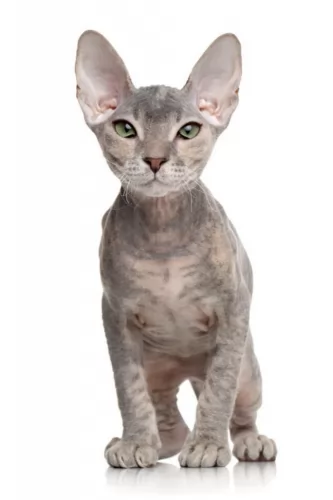 The Don Sphynx is a medium-sized cat known for its large ears and its long, webbed toes.
The Don Sphynx is a medium-sized cat known for its large ears and its long, webbed toes.
Their weight can be anything from 3 to 6 kg It’s a hairless cat but has different skin types that come in different shades – Flock, Rubber Bald, Velour and Brush.
The cat has this dominant hair loss gene that causes the coat they have at birth to thin and fall out. In fact, on close inspection, you’ll find that the cat isn’t entirely hairless but has a very fine layer of fuzz. The skin can be oily and the cat requires bathing fairly regularly.
These particular cats are also more susceptible to the cold and to sunburn. The legs of this cat are long and slender and they have a bit of a bow-legged appearance to them, but this is because of the barrel chest. The tail is long and hard.
These rare cats make excellent pets because they have all the characteristics needed that make them companionable. They are loving, companionable and playful. These are also intelligent, exploring cats which means you’ll need to provide them with games and toys that can keep them occupied.
They’re good with children and other pets and are even good for first-time cat owners. Breeders of these cats will tell you that they are even-tempered and amicable. They are gentle towards children and other pets.
Most of the time the cat has a calm demeanor but is highly sociable. As an entertainer too – he will do anything to get a laugh out of his human family.
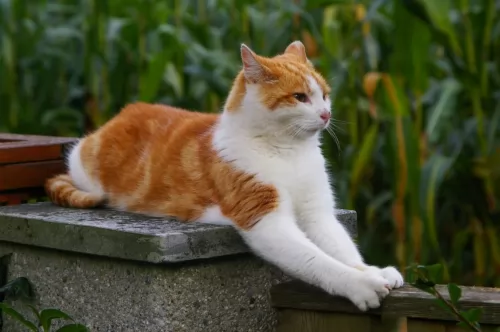 The Bicolor cat is such a steady, reliable cat-friend to have. When you start looking as these cats as your companion, you're going to get a smart, funny, adoring, playful family member who will be there for you whether you go to work each day or stay at home.
The Bicolor cat is such a steady, reliable cat-friend to have. When you start looking as these cats as your companion, you're going to get a smart, funny, adoring, playful family member who will be there for you whether you go to work each day or stay at home.
They’re such easygoing cats, with no airs and graces. They’re happy, relaxed, and uncomplicated cats and when you make a Bicolor your pet and friend, your life just becomes that much more meaningful.
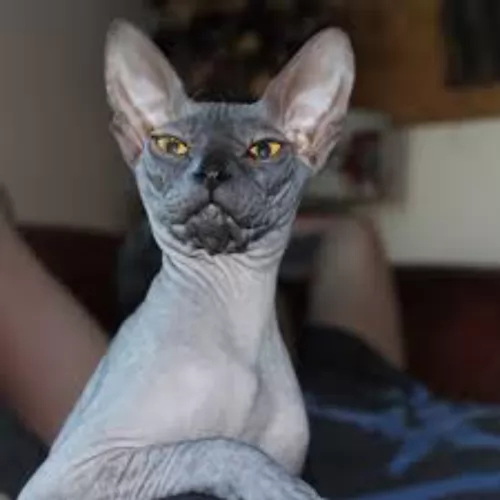 The sphynx cat is an energetic feline that absolutely loves the attention of its human owners. In fact, he will even be willing to show off to get some kind of reaction from his humans.
The sphynx cat is an energetic feline that absolutely loves the attention of its human owners. In fact, he will even be willing to show off to get some kind of reaction from his humans.
This is certainly a cat that has a sense of humor. They’re friendly, loving cats who like to even follow you around the house to be where you are. They are loving and loyal, curious, intelligent and active.
It’s a hardy breed and you won’t have many health issues to contend with. We know that they are prone to skin conditions and periodontal disease so watch out for these with this amazing, but unusual looking cat.
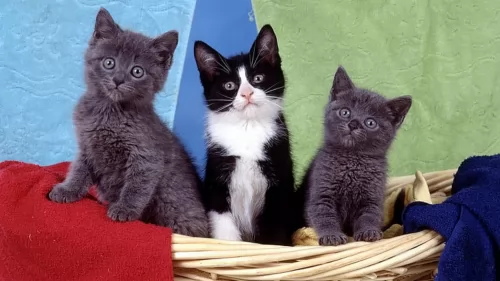 By providing your kitty cat with a loving home, you can ensure that he stays as healthy as possible. Unfortunately though, cats can get sick, regardless of how well you take care of them and then as a responsible pet owner, you will be able to take your pet to your local vet.
By providing your kitty cat with a loving home, you can ensure that he stays as healthy as possible. Unfortunately though, cats can get sick, regardless of how well you take care of them and then as a responsible pet owner, you will be able to take your pet to your local vet.
Some of the common cat problems you get can be kidney disease, ear infections, dental disease, parasites such as heartworm, cancer or something like feline immunodeficiency virus.
Whether your cat has a virus or an infection, remember that getting your cat to the vet can mean nipping the problem in the bud before it gets more serious.
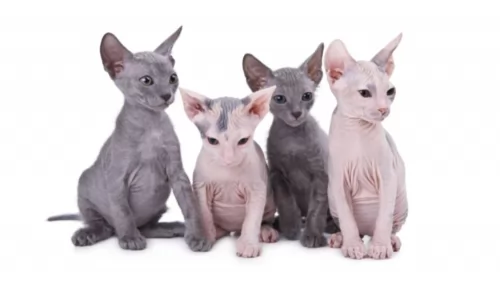 Hairless cats are prone to teeth and gum issues, and every Don Sphynx owner needs to regularly check their cat’s teeth as bad teeth can cause a lot of problems with health as well as discomfort with the teeth.
Hairless cats are prone to teeth and gum issues, and every Don Sphynx owner needs to regularly check their cat’s teeth as bad teeth can cause a lot of problems with health as well as discomfort with the teeth.
This cat breed is also fairly prone to skin problems. You will need to watch him for rashes and fungal infections. Remember, that this strange-looking cat also needs vaccinations and de-worming as well as regular veterinary health checks.
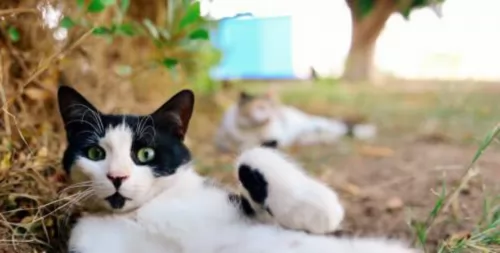 Caring for your Bicolor cat is much the same as with any other cat. Your Bicolor will shed, so brushing him will tickle him pink, especially if you do it lovingly and gently – it’s like a bonding session. The weekly brushing will get rid of loose hairs and dust and keep the coat healthy and shiny.
Caring for your Bicolor cat is much the same as with any other cat. Your Bicolor will shed, so brushing him will tickle him pink, especially if you do it lovingly and gently – it’s like a bonding session. The weekly brushing will get rid of loose hairs and dust and keep the coat healthy and shiny.
Spay or neuter your pet to avoid unwanted kittens. Stay up to date on veterinary visits and vaccinations.
Provide your cat with stimulating toys as well as all the equipment he needs to be comfortable – food and water bowls, litter box, grooming equipment, bedding, climbing- and scratching equipment.
All cat owners, whether their cats eat homemade food or wet- or dry food should read cat food labels and understand the nutrients content.
Certainly, as a carnivore, cats require certain vitamins, minerals, and proteins that only meat can provide.
Understand how to work out if the cat food is balanced or not and not packed with too many grains and carbohydrates.
How much your Bicolor eats will depend on his age and his activity levels. Be careful not to overfeed your cat as overfeeding is dangerous. When cats put on too much weight, it leads to problems such as diabetes, heart- and joint disease.
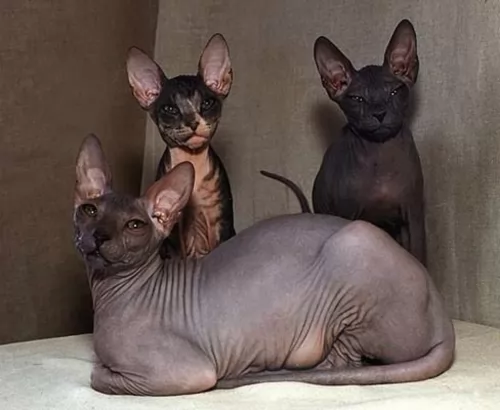 In spite of this being a hairless cat, it still requires frequent grooming, and yet you have to be careful that you don’t allow the cat to be bathed too often either.
In spite of this being a hairless cat, it still requires frequent grooming, and yet you have to be careful that you don’t allow the cat to be bathed too often either.
Have your cat spayed or neutered to avoid kittens that you don’t want. This is beneficial for the cat’s health.
This is a unique cat and when it comes to food, if you can afford it, go for the very best food there is. Good food contributes to good health and this cat is a carnivore and requires food high in meat protein.
Of course, it requires other nutrients and the best commercially manufactured cat foods will have a list of ingredients in them that are important to your cat’s health.
Of course, with diet, there are other important considerations to think about and one of these is the right quantity of food to maintain the cat’s ideal weight. Too much weight gain can put pressure on the cat’s joints and contribute to health problems.